Is Manchester on the edge of a new 'Golden Age'?
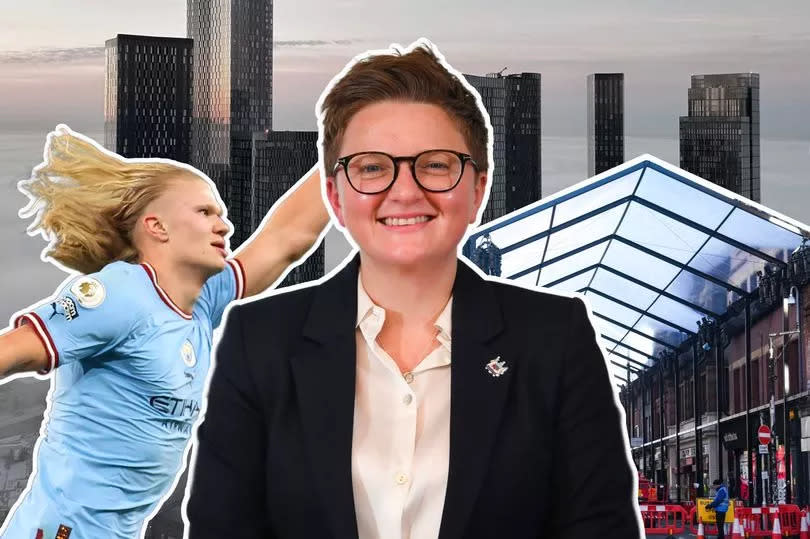
Bev Craig has been leader of Manchester City Council for exactly two years. And when she's asked a big question by the Manchester Evening News about the city's progress, the answer that comes back is brimming with optimism.
Is Manchester on the brink of a new Golden Age?
"If you look at the city's resurgence, and the trajectory that we've been on, from the late-80s or early-to-mid-90s, the rising economy that we've seen — all of those things — I think the conditions are right for it," she replies.
Days after the M.E.N. interview, the first signs of Chanel's Northern Quarter catwalk came into view, in the build-up to fashion house's eagerly-anticipated Métiers d'Art show, and the English National Opera announced its move to Manchester.
Weeks before that, Danny Boyle's reimagining of The Matrix opened at Aviva Studios, the biggest investment in culture seen in Britain for 20 years. Meanwhile, huge leisure attractions Co-op Live and Therme Manchester are set to open soon.
And, in May, Manchester City completed their historic treble, a generation after United's feat - which means that, of the only two English clubs to reach those heights, both are Mancunian.
Meanwhile the city centre's development boom roars on. This week, the starting gun was fired on the latest race to build Manchester’s tallest skyscraper.
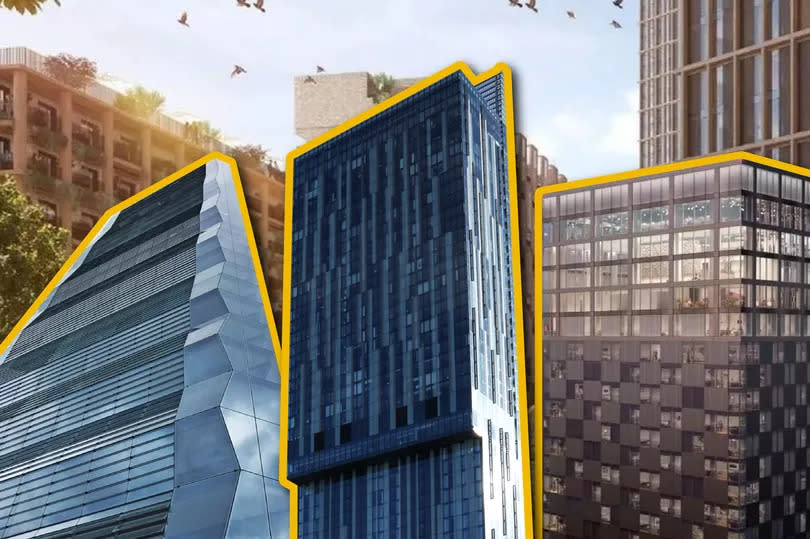
Meanwhile in late November, city leaders and business bosses mingled at No.1 Circle Square - 12 storeys above the ground - to announce the launch of Manchester's latest economic strategy, which promises to grow the city with a less 'trickle down and more interventionist' approach for the next decade.
At launch, Coun Craig said: "We want good jobs, we want to keep people and attract people. We don't want to be a city that you just go to for a night out and a laugh. We want to have a mixture. In true Manchester form, we want to have our cake and eat it."
Now, she wants to explain exactly how.
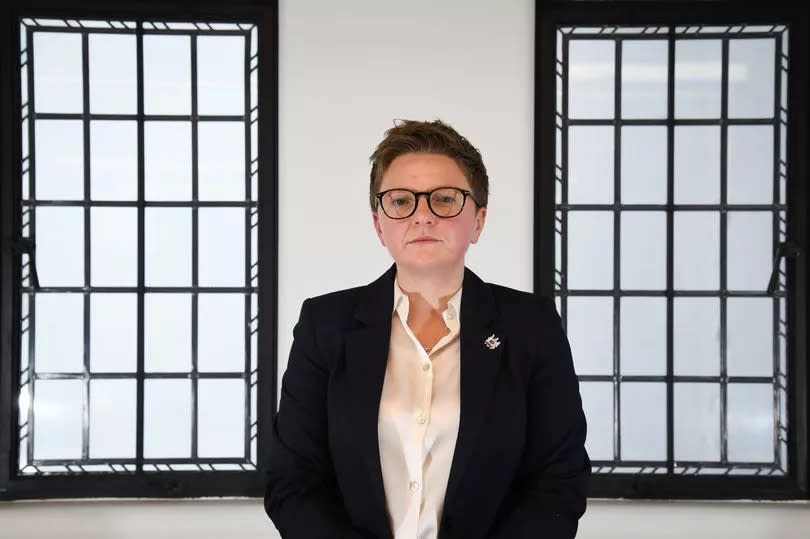
'Your cousins built that'
It’s been 20 years since Coun. Craig moved to Manchester from the outskirts of Belfast to study politics and modern history at the University. Back then, the city was fresh from the spotlight of the Commonwealth Games— but still far from the city we know today.
Metrolink only had 24 miles of track, and Beetham Tower had only just made it off the drawing board and on to the planning department’s desk.
Those developments are part of a much broader trend, in Craig’s eyes. And she believes even better times could be ahead.
There is another side, however. Manchester Move believes there are 15,000 applications on the waiting list for social housing in the city. Greater Manchester Poverty Action says there are 59,133 children in poverty, or 45 percent. And in some parts of Manchester, men are only expected to live to 70 (Miles Platting), and women 76 (Gorton South) - around 12 and 16 years less than the healthiest census ward, the city centre.
But Coun Craig is of the view that the city centre's progress can create opportunities for all. She cites the £250m Aviva Studios arts centre, formerly known as Factory International, as an example.
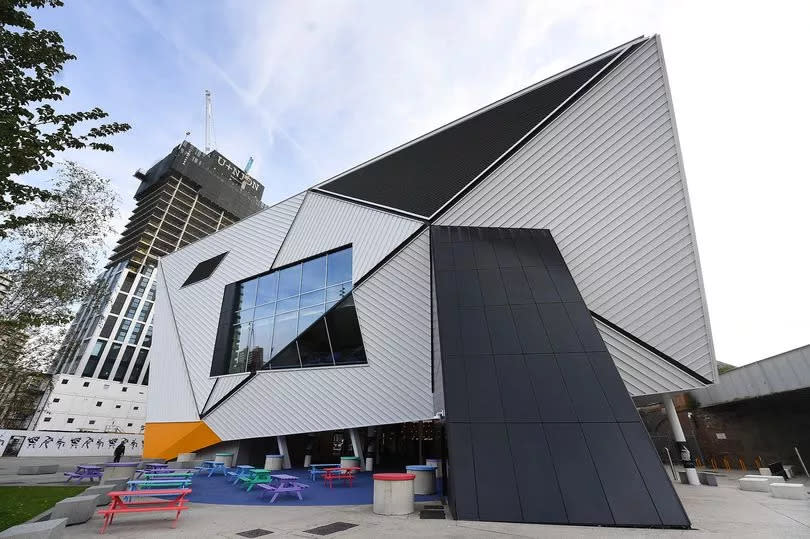
“When we were building Factory, we made such a big effort on the apprenticeships, to make sure that we were able to show people that ‘alright, you might not know who Danny Boyle is....but your cousins are building it," she says.
“I think it's given people a stake in stuff as it happens. It helps to overcome ‘why would you go into the city centre?’”
It's all a far cry from 1980s Manchester - a city where the unemployment was above 15 percent and was scarred by dereliction, after deindustrialisation ended the Cottonpolis era, an era which put the Victorian city on the map.
The industrial revolution led to a golden age where Manchester's population swelled, money poured in, and led the world in science by splitting the atom.
Physics is also at the heart of the dawn of the second golden age, with the 'Atom Valley' project aiming to bring 1.6 million square metres of new employment space, create around 20,000 jobs, and deliver 7,000 new homes across three sites in Rochdale, Bury, and Oldham - bringing 'the investment opportunities needed to make this the engine room of Greater Manchester’s next industrial revolution', according to city-region Mayor Andy Burnham.
Jobs, green space, cleaner streets?
If Atom Valley is successful, Manchester will be on its doorstep, with all of the existing leisure, retail, culture, and sporting opportunities it has to offer. However, the city of Manchester is also seeing its own job creation projects coming to fruition - with the likes of Amazon, BT, and the National Probation Service all having bases in the city centre.
As the council revealed in its new economic strategy, it expects 70,000 jobs to be created across Manchester over the next decade - with 59,960 of those in the centre, in sectors like life sciences, technology, and professional services. By 2040, the numbers in employment in central Manchester are projected to rise to 315,000.
Additionally, it's not just businesses moving into town. As has been reported by the M.E.N extensively, the swathe of new residential development in the city centre has attracted thousands of people in - and the city centre's population is expected to hit 100,000 in 2026. In the early nineties, it was well under a thousand.

But as more people move in and more workers find desks at offices in the city, what will all that mean for the quality of life of Mancunians?
Asked what we could expect Manchester city centre to look like, if she spent ten years in the job, Coun Craig says ‘greener, with more green public realm spaces’. Ideally, 'it will continue to get denser, particularly around office development' because jobs in town can pay better - giving the city's economy a productivity boost.
And at the same time, in Craig's vision, it should retain its vibrancy and ability to offer ‘creative and fun ways to spend your time’. If all of that is a success, it means Manchester 2031 will be a 'mixing pot' of 'work, play, or shopping' - an all-rounder that is 'doing lots of things'.
That's the big picture. But there will also be a focus on ‘a whole bunch of other, basic things’ that the leader has ‘not been so happy with’, like ‘levels of cleanliness and quickly repairing our streets’.
Why city centre growth matters
First elected to represent Burnage in 2011, Coun Craig was appointed to the council's executive in 2017, and deputy leader in May 2021.. She got the top job in December 2021, winning out against Luthfur Rahman in a close poll of the city's Labour group councillors in October of that year.
She succeeded Sir Richard Leese, who held the position for a quarter of a century. His tenure saw Manchester host the Commonwealth Games, recover from the 2017 Arena bombing, and residential development in the city centre explode.
In the 24 months Coun Craig's been leader, she says her biggest achievements include 'rewriting the housing strategy' to include '10,000 genuinely affordable homes' - up from 6,400 in the previous housing plan - and the Making Manchester Fairer programme, which sees the council 'actually investing into things like early years, people's mental health, getting them into jobs that actually begin to tackle some of those inequalities'.
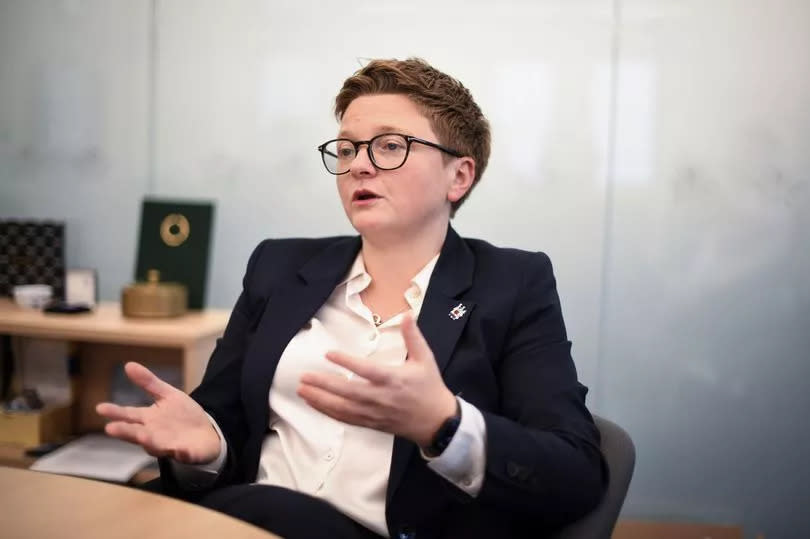
But it's believed it's jobs in the city centre which will really boost the city's economic productivity - one of the measures the council will judge success by - and that's a reason why Manchester city centre must continue to grow, according to the strategy. Under the new 'push out and flow' model, Craig told reporters last month she wants more economic growth, but without the 'high levels of inequality' seen in Manchester.
And the city centre is ripe for a range of sources of investment, owing to the fact it has several different neighbourhoods. The Village attracts investment from the LGBTQ+ community, influencers spend their money in Spinningfields, the arts crowd will soon head to St John's and Aviva Studios, the Northern Quarter is a hub for trendy fashionistas, plus the retail of Market Street and connecting areas.
"The next 10 years [are] about fine tuning some of the distinct places and identities that continue to grow within the city centre," Craig says.
“I speak to a lot of working class Mancs that are immensely proud of what they see in the city centre, and they are proud of it because it's theirs — and it's Manchester's," she adds.
But there are Mancunians who raise concerns about whether the changing city is for them. Recently, the M.E.N spoke to residents in the city centre and its immediate suburbs. One of them was Peter Jones, a teacher from Whalley Range.
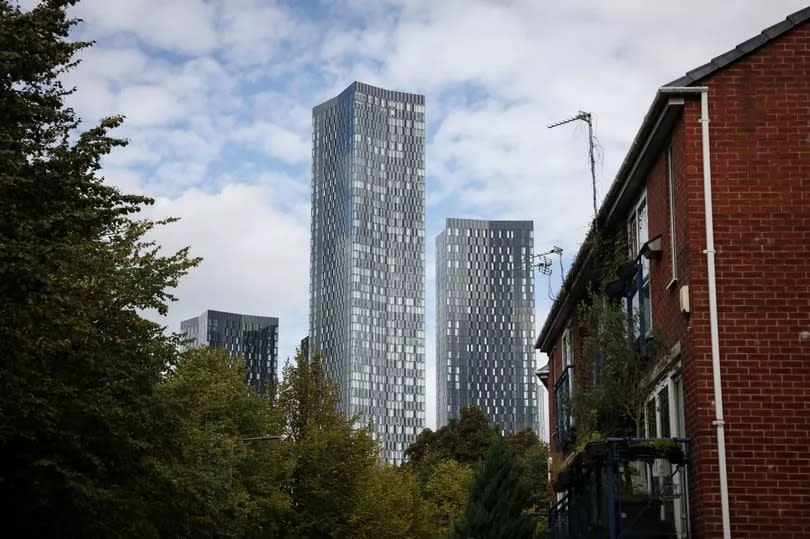
“This is a poor city," Peter reflected, walking through Hulme Market. "The kids I teach don't go into town, even if it's only a mile away, because they don't feel part of it.
“[Then again] the city centre is a hell of a lot better now… back then it was even more intimidating - closed off, so there were loads of muggings.”
The challenge for Bev Craig, then, is not only to ‘fine-tune’ the city centre, as she sees it. It’s to bring Mancs with her on its journey.
“For me it's quite personal”
It’s a ‘personal’ problem for Craig, 38. Growing up in social housing in Greenisland, eight miles north of Belfast city centre in the 1990s, she says her family would very rarely venture into town.
“Even to this day, my mum going into Belfast, is like a big deal,” she went on. “What will she wear? What would she do there? Where will she park?”
“That, to me, comes back to the purpose of being in the city centre," Craig says, returning to Manchester. "There has to be things that are affordable, there have to be things that are relevant, you can bring your kids in to play in Mayfield and it not cost a fortune. All of those things are really important.”

The contrast between a Manchester on which celebrities descend for a luxury fashion show, and a city where families worry about heating their homes this winter, is real. But we can expect more marquee events and developments.
“We still have the ambition for the big kind of international set-pieces and continuing to develop because it felt, to me, we just didn't talk about why we were growing," Craig says.
“So we talked about economic growth, but it became almost the end that we were striving for, rather than a means to an end. The means to an end has always been about giving people jobs and opportunities and putting more money in their pocket. Do that and everybody's prosperity rises up.”
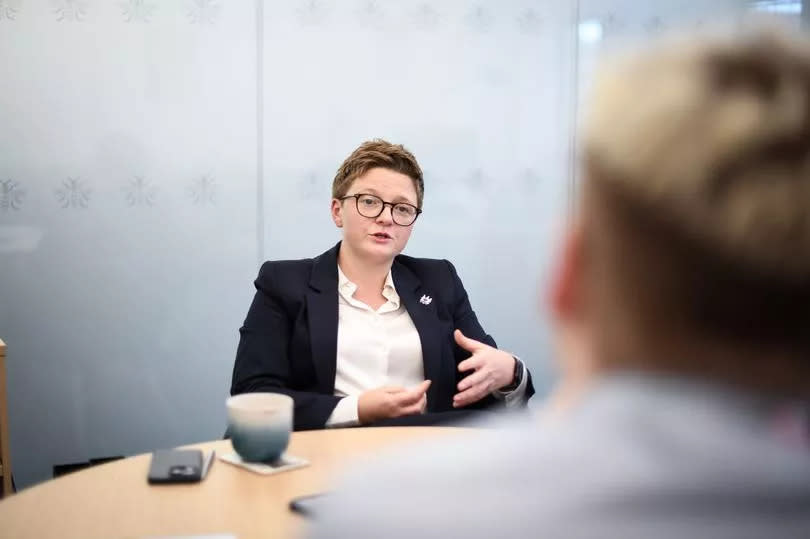
The majority of the city of Manchester’s wards — aside from ‘Didsbury East, Didsbury West, Chorlton, little bit of Chorlton Park, but not Merseybank, and the two city centre wards’ — are in the bottom-fifth for deprivation in the country, the leader adds.
But an uncertain domestic economic picture and inequality in the city, isn't deterring investment - from the Middle East, the Far East, North America, Europe and UK investors.
Coun Craig has said there's 'at least another 10 to 15 years of delivering [economic growth across Manchester] at the same scale that we're doing'.
Not just trickle down economics
November's launch of Manchester’s 10-year economic strategy, which was 15 months in the making, saw Coun Craig meet with property developers, industry and universities.
The notion of 'driven trickle down' - where good jobs in the city centre will translate into prosperity in other parts of Manchester with an interventionist council 'driving those benefits', the council's strategic director of growth Becca Herron told the event - is central to Craig's vision of the local economy.
Stopping people leaving the city for elsewhere in Greater Manchester is central to Coun Craig's goal.
“Historically people with money would leave [Manchester], so if people wanted to have the big house they would go to Stockport, they go to Trafford,” Craig explains. “It is a slightly frustrating misconception in Greater Manchester that Manchester's the bit with the wealth, and the rest of Greater Manchester doesn't.
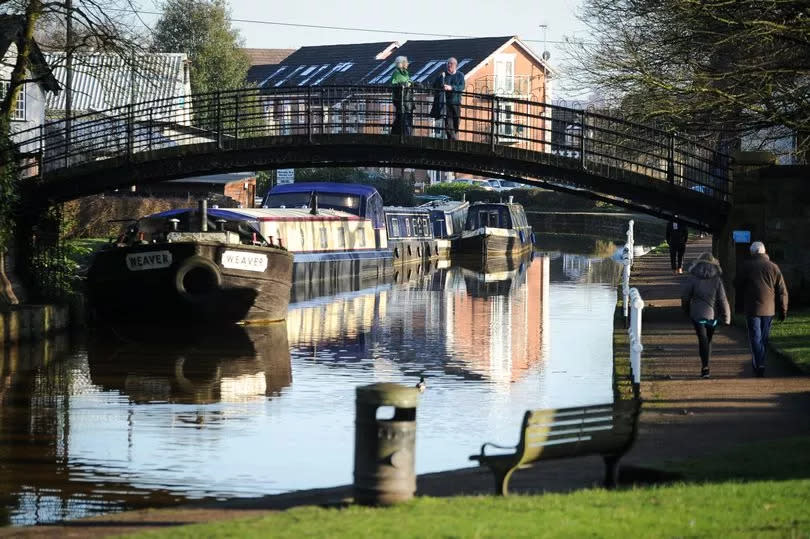
“Because statistically, it's just not the case. There are more rich people or middle class people living in Stockport or Trafford, or Salford or Bury than there are in Manchester.”
'Why we don't just talk about affordable homes'
Key to Craig's vision is making the city of Manchester ‘a place where people stay either in the city centre or the city of Manchester’, whether that’s 'Moston or Whalley Range'.... instead of ‘coming in and automatically moving out’.
Craig states that issues with affordability in the city centre are 'because of supply and demand'. That's why the housing strategy to 2032 mentions 36,000 homes in total, 10,000 of which are affordable, she went on.
"There has to be more supply coming through at all price points to help that market keep flowing - and that's evidenced," she says. "The reason that we haven't just talked about building affordable homes is because actually the housing market is functioning. If you build more mid range, then that keeps the stuff that's beneath the mid range at a lower cost."
The idea that Manchester is still having supply issues when it comes to housing might shock some, especially if they glanced out of the window on the Mancunian Way flyover and saw how many cranes populate the skyline. That building has defied national economic and political uncertainty - with towers going up throughout the pandemic, throughout Brexit, and throughout the creation of the Greater Manchester mayoralty in 2017.
And there could be more uncertainty with a change of government next year, with Craig's Labour party ahead in the polls. And when it comes to devolution, Craig says she 'hopes' gaining more powers from central government will be an easier task from a Prime Minister Keir Starmer than Prime Minister Rishi Sunak.
Specifically, Craig is after powers over employability, so the council has more freedom to provide people with incentives to return to work that won't affect their benefits during the process.
"It's the kind of things that we were asking for in devolution, where you could have local control over the job centre, not the benefit system nationally, but local control over the job centre.
"It would just make this stuff so much easier. I do think that the Labour Party are in the territory of seeing the benefits of examples like that, that they can easily sort of flow through."
Bev Craig is also clear about what she doesn't want Manchester to be.
"Frankfurt statistically is one of the most productive cities in the world," she told the M.E.N at the economic strategy launch. "But without being unkind to Frankfurt, it's not a very culturally rich or exciting or vibrant place to live. You could work there, but you don't necessarily enjoy spending time there. That, for me, is kind of the opposite of what Manchester wants."

 Yahoo News
Yahoo News 
